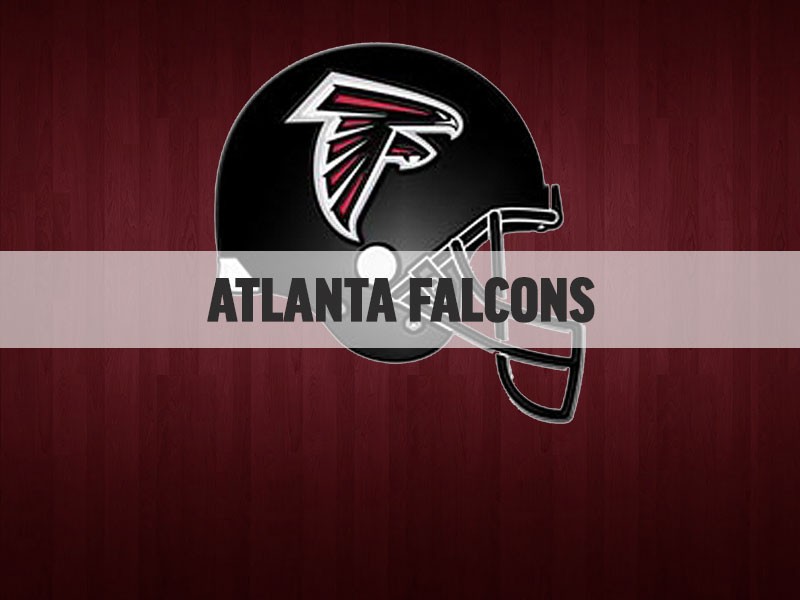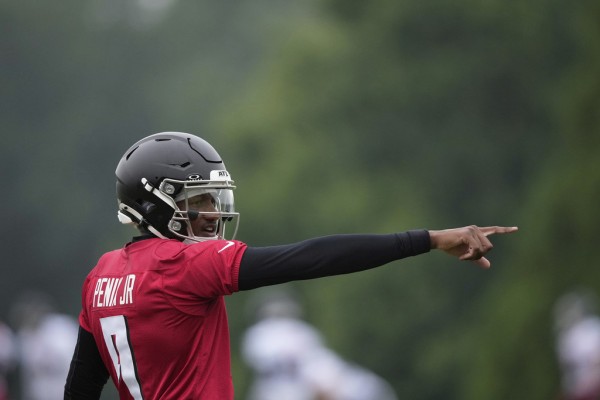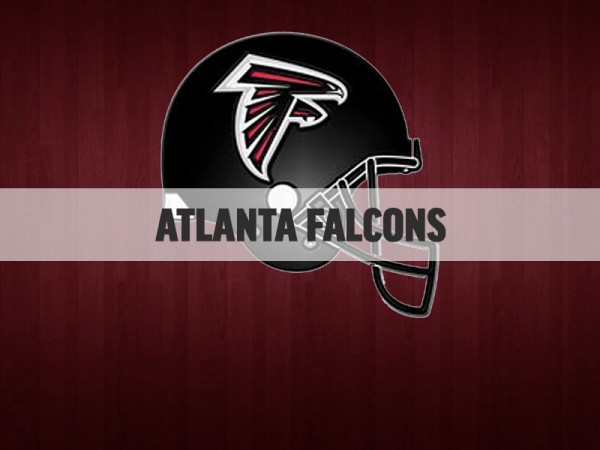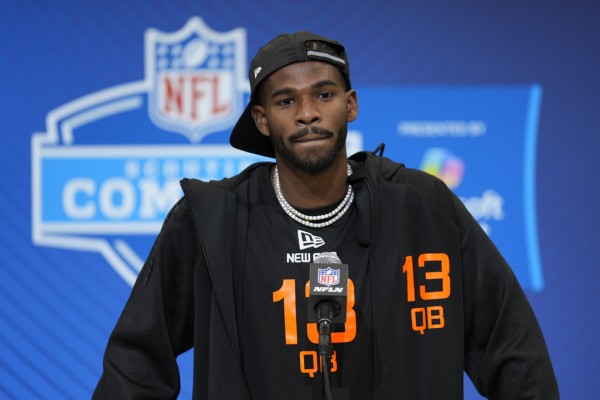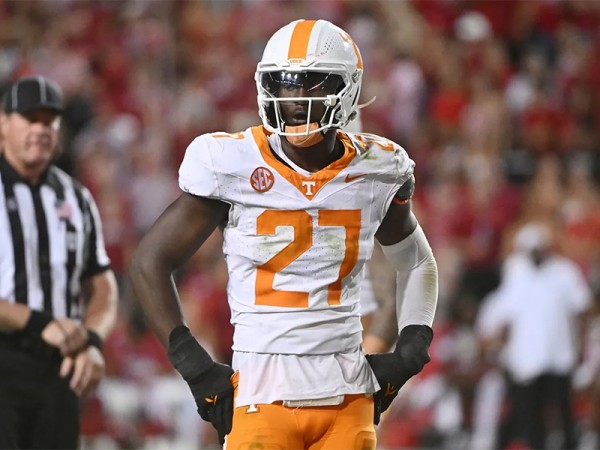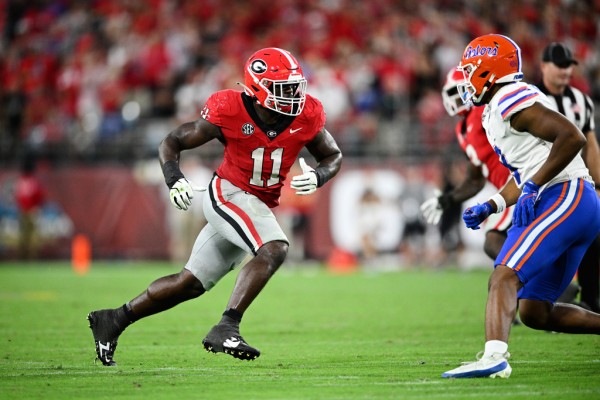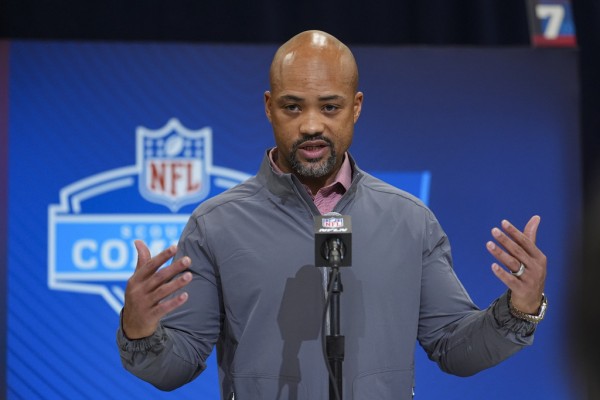ATLANTA (AP) — The NFL has its own version of three-card monte.
We'll call it the Super Bowl Scam.
It goes something like this: Hey, if you'll dole out hundreds of millions of dollars to build a new football stadium, we'll give you a shot at hosting our biggest game and reaping an outlandish economic impact for your city.
Only thing is, there's no chance of finding the right card.
It doesn't exist.
Atlanta was the latest mark in this hugely profitable shell game run by the NFL and its billionaire owners.
In order to play, the city had to fork over at least $200 million of the taxpayers' money to help the Falcons finance a $1.4 billion retractable roof stadium that wasn't even needed (the Georgia Dome is only 24 years old). Then, to make it seem like a hand that couldn't lose, the Metro Atlanta Chamber of Commerce chimed in as the league's accomplice, estimating that a Super Bowl would bring $400 million in economic impact.
Last week, the NFL turned over all the cards, awarding its next available title game to Atlanta in 2019 (along with Miami in 2020 and Los Angeles in 2021).
But the reality is Atlanta has about as much chance of collecting that $400 million payoff as Madonna being asked to perform another tribute to Prince.
"It's probably about 10 percent of that," said Tom Smith, a finance professor who specializes in sports economics at Emory University.
If Smith's number seems low, consider what it would take to reach the chamber's fantastical figure. Mercedes-Benz Stadium, which opens next summer, will hold around 75,000 for the Super Bowl. Every one of those fans would have to generate more than $5,300 in economic impact to reach the $400 million mark.
Of course, the chamber will tell you it's more complicated than that.
"They simply count the spending of people coming into town to attend the Super Bowl as new economic impact in the community," said Brad Humphries, an economics professor at West Virginia University. "They make assumptions like, 'They'll all be staying five nights at like $200 a night, plus eating out and things like that.' Then they apply some sort of multiplier analysis to that."
Humphries knows better.
More than a decade ago, he co-authored a study that looked at the economic impact of all major sports championships over a 20-year period.
"We found no evidence that local income or local employment were any higher in years when a city hosted a Super Bowl than other years," he said. "If it was generating the sort of economic impact that people say, I think we would've been able to find it."
Nothing much has changed since then, but cities keep playing the game.
Since 2006, the Super Bowl has been held in six locales that constructed new stadiums, at a cost to the taxpayers of at least $1.5 billion. There's more where that came from, with Minneapolis getting the title game in 2018 as payoff for building $1.1 billion U.S. Bank Stadium, made possible by $498 million in public funding. Then comes Mercedes-Benz Stadium, where the public cost is supposedly capped at $200 million but will run closer to $600 million, according to Neil deMause, who co-authored the book "Field of Schemes: How the Great Stadium Swindle Turns Public Money Into Private Profit."
Smith said the big flaw in the numbers being pushed by chamber-of-commerce types is that they fail to take into account the money a city might lose hosting a major sporting event.
"They just multiply this and this and this and get some kind of crazy amount," he said. "They never factor in the offset."
For instance, worries about bumper-to-bumper traffic — a major concern in Atlanta — could prompt suburban residents or potential tourists to stay away from downtown during a Super Bowl week, costing the city money it would've otherwise earned. Security and policing costs keep going up for major events. And, while early February is generally a light time for convention and tourism business in Atlanta, it's not like all the hotels, restaurants and attractions were going to be empty if not for the big game.
Oh, and let's not forget, state and local governments are providing a $26 million subsidy right up front, through a sales-tax exemption on pricey Super Bowl tickets and a portion of the city's hotel tax designated for major events.
In many ways, a city comes out better hosting a low-profile trade show.
"What you want when people come to town en masse, unless you are directly involved with them, is for them to be invisible to everybody else," Smith said. "You don't want people saying, 'I'm not going anywhere near there on a Super Bowl weekend.'"
In fairness, there are some benefits to hosting a Super Bowl. It undoubtedly raises a city's profile, making it easier to lure potential new businesses. The television coverage throughout the week, which in Atlanta will surely include shots of local attractions such as the Georgia Aquarium and the World of Coca-Cola, is the sort of tourism advertising you can't get anywhere else.
Still, it doesn't come anywhere close to $400 million.
The only winners in this little con are the NFL and its billionaire owners.


